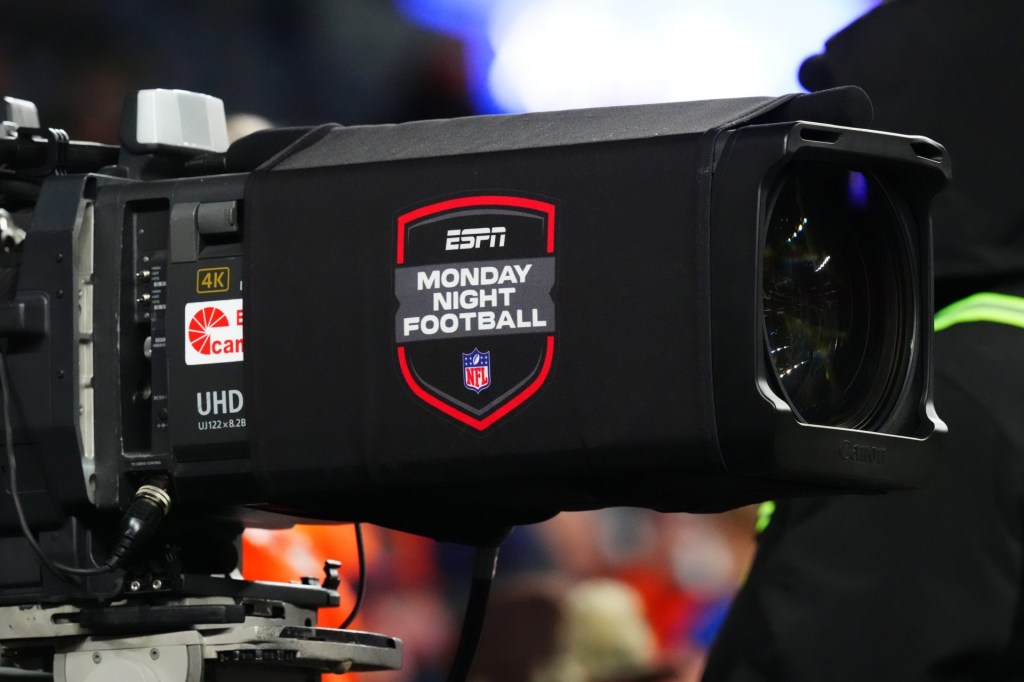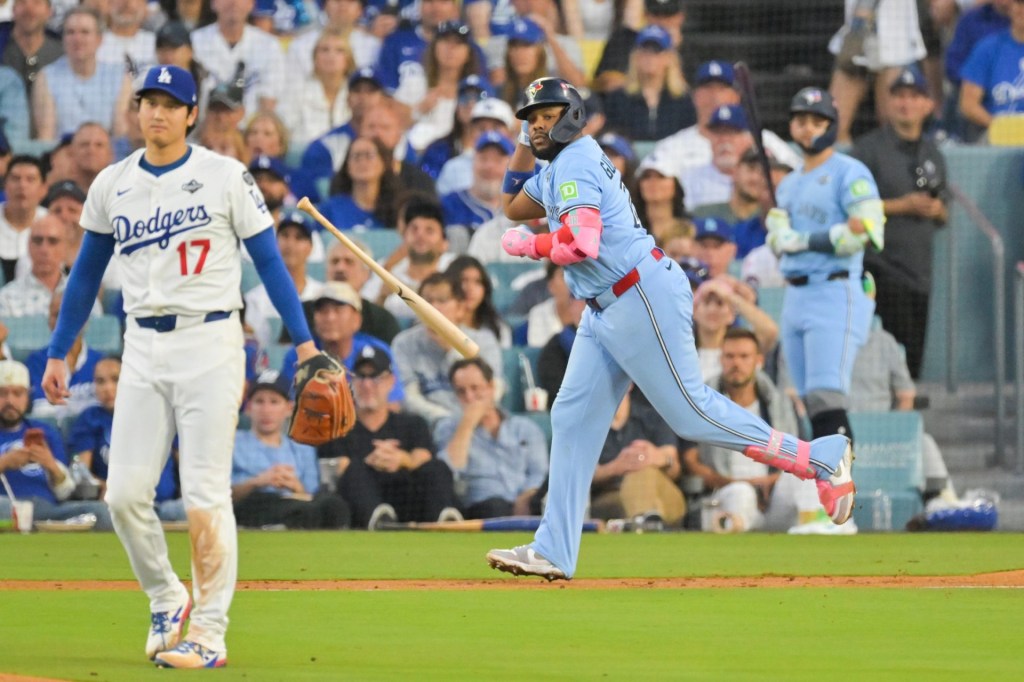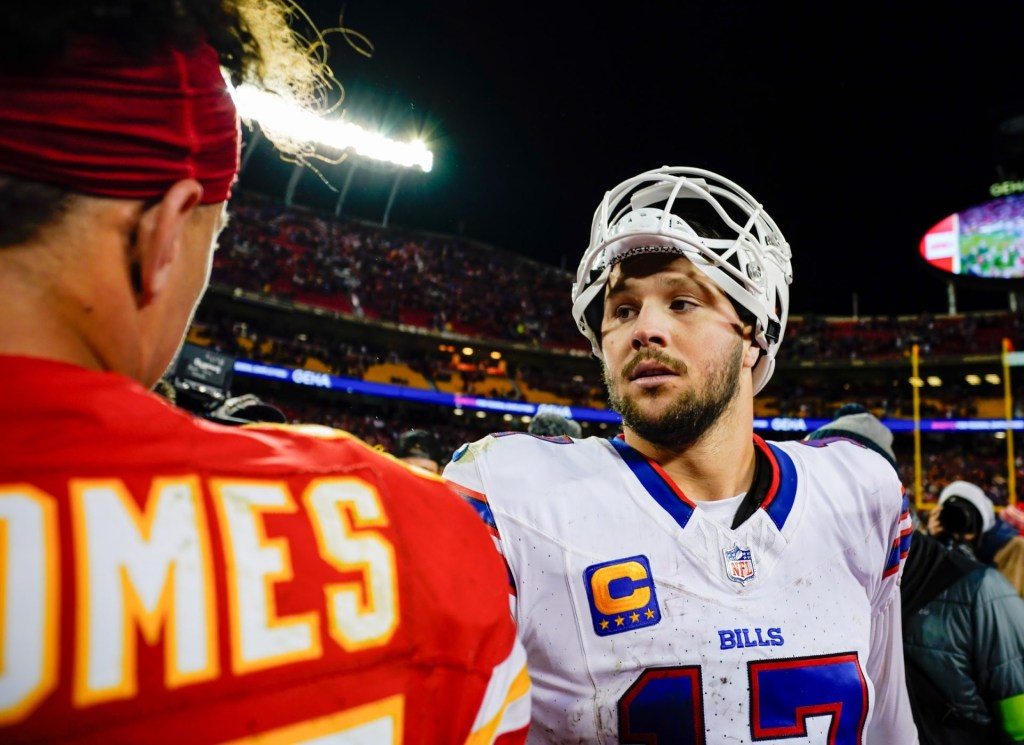Aaron Rodgers is not used to being treated like a washed-up loser. It’s making him a ripe target for mockery on ESPN.
On Thursday and Friday, ESPN’s Ryan Clark and Mina Kimes teed off on the Jets quarterback for complaining about the network’s coverage on The Pat McAfee Show.
“There’s a lot of people talking about the game now. Both non-former players and former players who are trying to stay relevant fame-wise. So the takes, and the criticism, I think are a lot different than they were maybe in the mid-2000s,” Rodgers told McAfee during his weekly Tuesday appearance.
“I’m not talking about you, Pat. … I’m talking about these experts on TV who nobody remembers what they did in their career. So in order for them to stay relevant, they have to make comments that keep them in the conversation. That wasn’t going on in 2008, 2009. That was non-existent. The SportsCenter of my youth, those guys made highlights so much fun. And that’s what they showed on SportsCenter. Now it’s all talk shows and people whose opinions are so important now, and they believe they’re the celebrities now, they’re the stars for just being able to talk about sports, or give a take about sports, many of which are unfounded or asinine, as we all know. But that’s the environment we’re in now.”
The four-time NFL MVP can be haughty. But his message about ESPN is not inaccurate. The Worldwide Leader is driven more these days by Stephen A. Smith’s First Take than SportsCenter. The problem—as Clark and Kimes acidly pointed out—is Rodgers is the wrong messenger.
To start with, Rodgers earns millions from McAfee for his exclusive appearances. By extension, he’s earning some of that money from ESPN, which is paying McAfee $17 million a year over five years to license his show. It’s pretty rich for the four-time NFL MVP to complain about former players earning a living with their opinions when he’s paid to give his opinions on a national sports talk show.
Rodgers’s “arrogant” and “tone-deaf” comments indicate he can’t handle being covered like a has-been, said Clark.
“This dude is a fraud. He’s been a fraud. He can throw a football—and that’s where it stops. Once that talent ends, so does him and so does he. To sit up there and be blatantly hypocritical is funny—and sickening—at the same time,” Clark said on Friday’s First Take.
If Rodgers is going to deride a sports TV analyst’s opinion as “asinine,” Cam Newton challenged him to name names. “Put a name on that.”
Kimes previously acknowledged on First Take that Rodgers has a legit point. But his lack of self-awareness is galling.
“His point that personality-driven programming has overtaken highlights, he’s well within his rights to note that,” she said. “But others are well within their rights to note that he’s espousing that opinion on a personality-driven program that employs him as a personality during the NFL season. That context does matter here.”
The NFL Live analyst added: “I think there is some subtext that he is saying some of the criticism perhaps of his play this year might have been unfounded. Again, he is totally well within his rights to note that. But a lot of the criticism this year is substantiated because of his play. And I guess that’s why I come away from this feeling like there is a lot of validity to this message, but it does seem like the wrong messenger at this moment.”
Or as Clark put it: “I find it extremely funny that he’s saying that on a show with a man who, as great as he was a punter, is far more famous as a pundit. And it’s Pat McAfee.”
Clark and Kimes hit the nail on the head: Rodgers doesn’t care so much about ESPN people giving opinions as much as he cares about them giving negative opinions about his play.
It’s easy to understand where Rodgers is coming from here. Because of his otherworldly ability to throw a football, he’s been lionized and fawned over most of his life. It’s tough for superstar athletes to admit to themselves they don’t have it anymore. It’s tougher for them to sit and listen to anyone—much less ex-players who never had a tenth of their ability—say they’re washed up and should retire.
But that’s sports. As a star’s ability fades, they face increasing questions, doubts, criticism, even ridicule. Rodgers is getting it now. So is 39-year-old LeBron James. They can rail against it. But they can’t hide their diminished playing skills.
The fact that ESPN’s NFL analysts have no qualms about blasting Rodgers indicates to me they don’t care anymore. They don’t care about getting access to him, whether he returns to the Jets or not. They’re not going to bend over backward to understand his enigmatic personality and towering intellect. They’re already looking past him. As Colin Cowherd put it about the darkness retreats, the COVID-19 theories, the potshots at teammates: Rodgers is “exhausting.”
Who knows? Once Rodgers retires, he might have a change of heart about former players giving their opinions on TV; maybe he would even ask McAfee or ESPN’s talent czar Burke Magnus for a job. But he may have already burned that bridge.
Twice a week, Michael McCarthy’s “Tuned In” newsletter is at your fingertips with the latest insights and ongoings around sports media. If he hears it, you will, too.
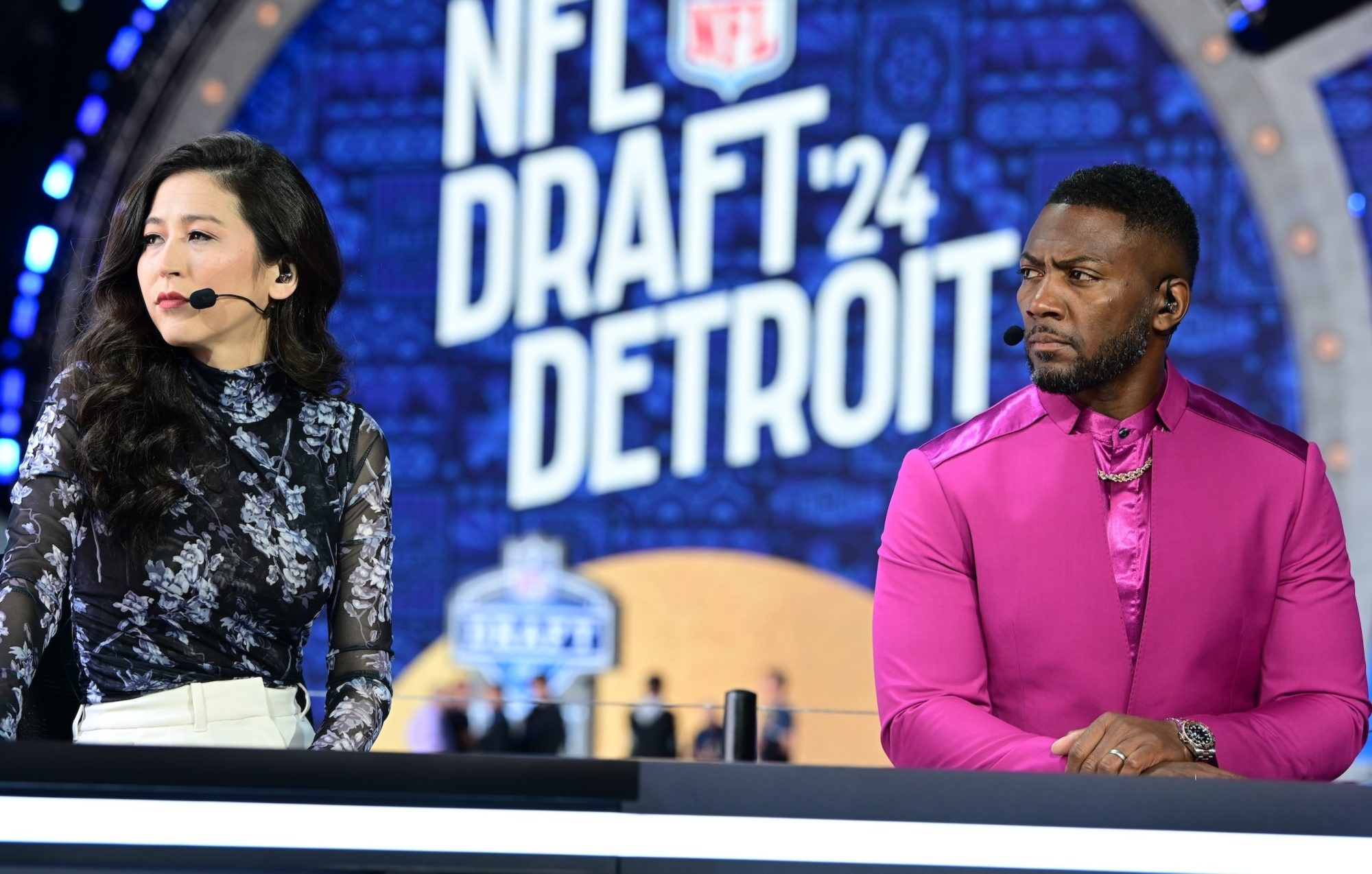
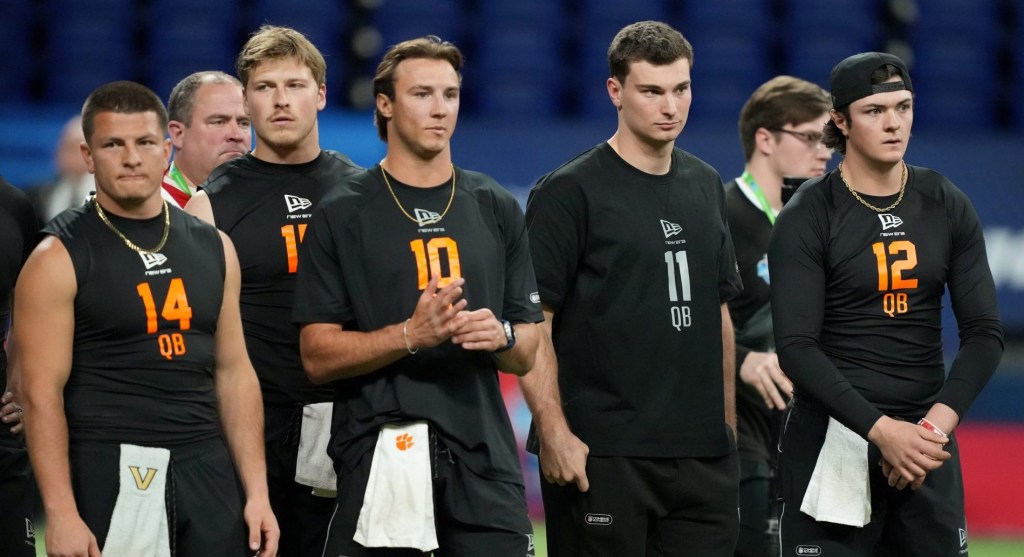
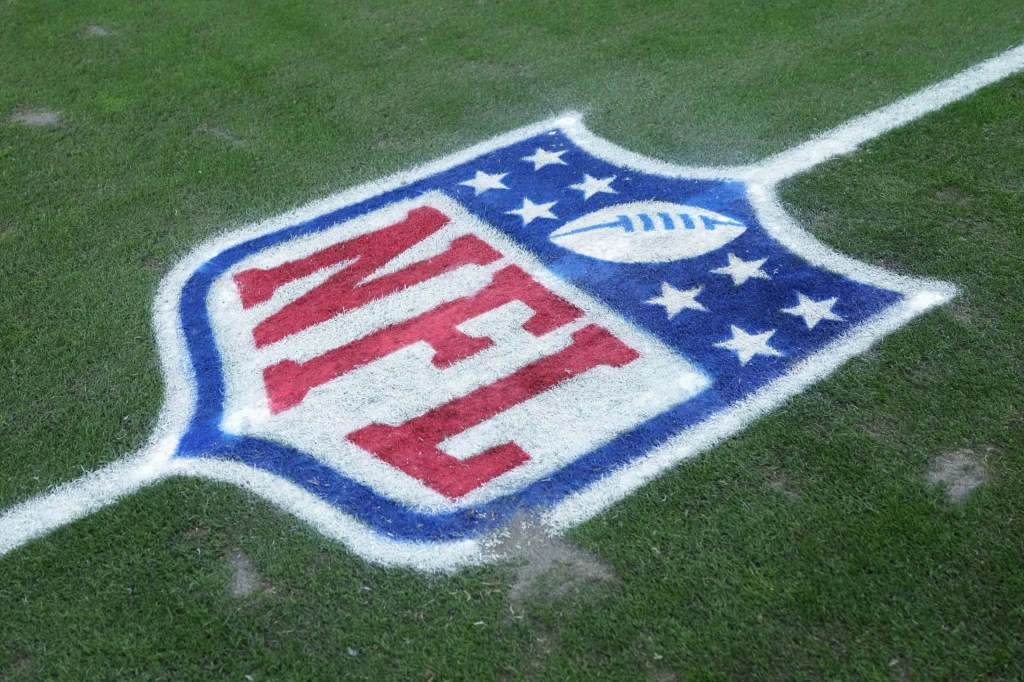


![[Subscription Customers Only] Jun 15, 2025; Seattle, Washington, USA; Botafogo owner John Textor inside the stadium before the match during a group stage match of the 2025 FIFA Club World Cup at Lumen Field.](https://frontofficesports.com/wp-content/uploads/2026/02/USATSI_26465842_168416386_lowres-scaled.jpg?quality=100&w=1024)
![[Subscription Customers Only] Jul 13, 2025; East Rutherford, New Jersey, USA; Chelsea FC midfielder Cole Palmer (10) celebrates winning the final of the 2025 FIFA Club World Cup at MetLife Stadium](https://frontofficesports.com/wp-content/uploads/2026/02/USATSI_26636703-scaled-e1770932227605.jpg?quality=100&w=1024)




